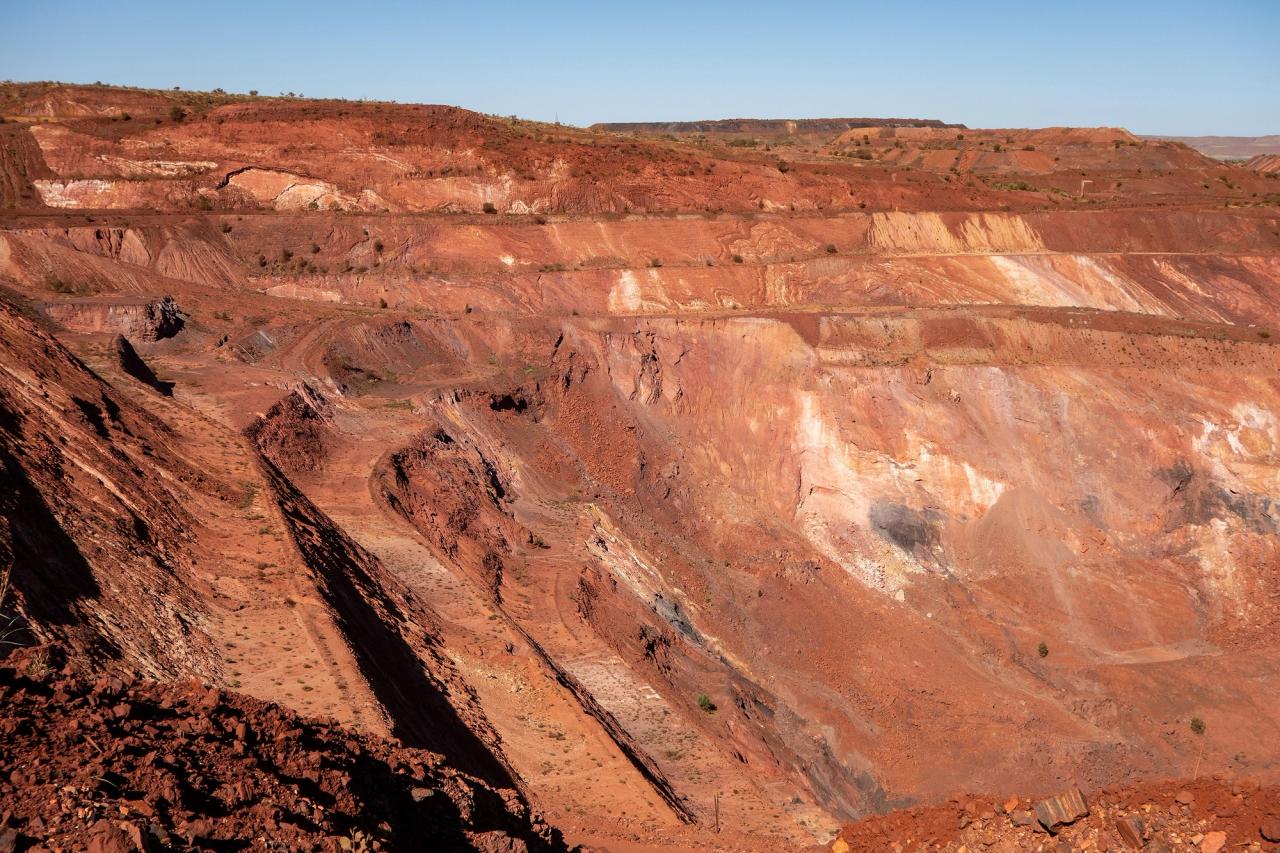Cultural change at Rio Tinto

In May 2020, the mining company Rio Tinto destroyed a 46,000-year-old cave system on Aboriginal land in Juukan Gorge, Western Australia. How could this happen and how can such an incident be prevented in the future? These questions were at the heart of the SVVK's engagement dialogue and the beginning of a fundamental cultural change at Rio Tinto.
Juukan Gorge in north-west Australia is famous for its unique caves. Human occupation dates back to the Late Ice Age more than 46,000 years ago, making it the oldest continuously inhabited site and of unique archaeological significance. For the traditional owners, the Puutu Kunti Kurrama and Pinikura people (PKKP), they are a sacred site and a place of retreat - until May 2020, when a series of explosions destroyed the main caves. The reason: Rio Tinto, the world's second largest mining company, was expanding its mines to develop new iron ore deposits.
Global outcry
Although the demolitions were formally legal, Rio Tinto took advantage of weak laws that severely curtailed indigenous peoples' right to a say. The destruction of cultural heritage sparked global outrage and was heavily criticised by shareholders. Under public pressure, senior managers resigned, the company admitted a serious mistake and was ordered by the courts to rebuild as much of the destroyed site as possible.
From SVVK's point of view, the actions of the Melbourne and London-based mining company constituted a potentially serious breach of human rights standards. While the courts dealt with the compensation payment, the question for investors was: what needs to change at Rio Tinto to ensure that this never happens again?
The gap between ambition and lived values
The answer seemed all the more difficult because the company had previously been considered a 'good student' in its industry when it came to human rights. But there was a gap between ambition and values. The Juukan Gorge incident was a symptom of deep-seated disrespect for Aboriginal people and their diverse cultures, the oldest living cultures in the world.
Together with its partner Sustainalytics, SVVK entered into dialogue with the mining company in November 2020, demanding not only compensation for the indigenous peoples, but also credible signs of a new culture that consistently takes into account the interests of the indigenous population.
On 26 October 2023, at 17:00 local time, the final meeting took place in London and the dialogue was declared successfully concluded. What led to this conclusion? The previous year, Rio Tinto had reached an agreement with the PKKP to rebuild the site and establish a community-managed education and cultural fund. At board and management level, Rio Tinto established clear responsibilities for human rights management and linked them to financial incentives. The bonus payment for the new CEO, Jakob Stausholm, was linked to the completion of the remediation and reforms measures in relation with the Juukan Gorge incident.
Understanding indigenous culture
To avoid the devastating mistakes of the past, Rio Tinto also had to address the root causes. In 2022, the company published a report by independent experts who had examined its working culture. They found rampant bullying and racism against indigenous workers and a pervasive culture of sexual harassment. The report’s findings were extremely serious, but its publication showed a new openness on the part of the company and indicated a real willingness to change.
Rio Tinto began raising cultural awareness among its employees and redesigning incentives. Managers, especially mine managers, should learn to better understand indigenous culture through personal contact with people from their communities. They should seek good long-term agreements with indigenous groups, rather than buying new mining projects with the prospect of short-term economic benefits. Perhaps the most important measure is the targeted promotion of indigenous workers. Given the documented discrimination and disregard for indigenous culture, indigenous representation in management positions is important in the long term. Rio Tinto seems to have recognised this.
Like any company, Rio Tinto doesn’t operate in a vacuum. Its disregard for indigenous people and their culture extends far into the societies in which it operates, in this case, Australia. Through its response to the incident, the company has demonstrated its awareness of the risks and its willingness to change. Although progress is slow and may not be linear, the thoroughness of its investigations to date is a good sign. SVVK is therefore confident that Rio Tinto will gradually close the gap between ambition and practice.
Publication: April 2024
Sources: SVVK-ASIR (2024), Sustainalytics (2023), Reuters (2022), S&P Global (2022), Rio Tinto Independent Cultural Heritage Management Audit (2023), Rio Tinto: Juukan Gorge (2024). Image: Active deep pit of red iron ore mine in Pilbara region in Western Australia (mino21, Adobe Stock).